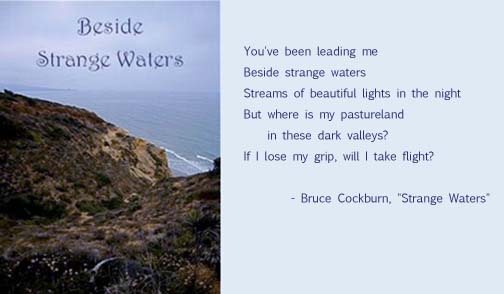Editing and revision may be the bane of a writer’s existence. Ted Kooser wrote:
“Revision, and I mean extensive revision, is the key to transforming a mediocre poem into a work that can touch and even alter a reader’s heart. It’s the biggest part of the poet’s job description. I’ve published hundreds of poems, most of them less than twenty lines in length, and people are always surprised to learn that I might take a single short poem through twenty, or thirty, or even forty versions before I think it’s finished” (The Poetry Home Repair Manual 16).
He reminds us to be patient:
“Don’t worry that the process of revision seems slow. The writer’s tools were developed early - paper, pen, and ink; a watchful eye; an open heart - and good writing is still the patient handiwork of those simple tools. A poet who makes only one really fine poem during his life gives far more to the world that the poet who publishes twenty books of mediocre verse” (ibid. 148).
Why should we bother to work so hard, for so little reward? Kenneth Koch in his discussion of “poetry language” concludes by saying:
"The last inclination of the poetry language I'll mention - though there are more - is specifically addressed to making whatever is said into a work of art. Without this one, of course, you may be writing, but you're not writing poetry" (Making Your Own Days 69).
Is it fair to argue that one must intend to make art in order to write poetry at all? Koch’s insistence on intentionality is really a statement about the importance of the writer’s craft. He knows that the best poets don't just write down any old thing; rather, they shape and craft and revise, and that we separate ourselves from the writing in order to have some objectivity about it as a work of art.
Without craft and revision, our poems remain stuck in the realm of mere precious self-expression.
I mean precious in both senses: precious in that it is valuable to the writer, and precious in the older sense of being affected and overwritten. Self-expression is self-affirmation and self-discovery; it's one of the reasons we love to write. But if we stop there, it's self-expression, not art.
Painters will step back from the canvas and look at it from across the room or in a mirror. They understand that we need distance between ourselves and our creations in order to see the “whole picture” and understand what is working or isn’t working, and what we need to do next.
Painters also study craft: they learn to draw, to mix colors, to use the right pencil or brush to get certain effects. They learn about structure and composition. They study the works of other artists.
Inexperienced poets may not realize that, like visual artists, they need to master the tools of their craft. They may be content with poetry as a means of self-expression, and see no value in the discipline of poetry as an art form.
For me, writing poetry is a kind of spiritual discipline which gives shape and meaning to my life. I want my poetry to be a work of art that will mean something to others as well, and give them a moment of thoughtful pleasure - because life is made up of moments, and good moments are essential to a good life.



No comments:
Post a Comment